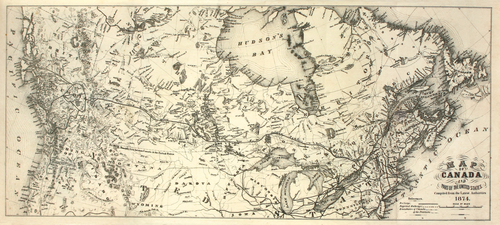The importance of history and cultural values


By Brian Kreissl
Two weeks ago when I posted my blog on the uniqueness of HR in Canada, I commented on LinkedIn how I could turn the post into a series. Because a couple of people encouraged me to do so, I thought I would continue with that theme again this week.
There is a great deal more to the differences than employment law and issues of relating purely to compliance. After all, the legal environment is largely a function of the cultural, political, religious, historical, economic and demographic influences shaping the society and its people.
This in turn impacts business and the practise of various professions and business functions in different countries. In other words, many of the same forces shaping the legal and regulatory environment also have an impact on the business climate and environment and society at large.
Canada’s peaceful history
Because Canada was established more or less peacefully by being granted Dominion status by the mother country (Britain), we don’t have the same history of violent conflict and revolution as our neighbours to the south. Notwithstanding conflicts between the British and French and the often shameful treatment of our Aboriginal people, our country was created largely through the peaceful and gradual transition to a self-governing colony and eventually a fully independent country.
Because of that largely peaceful history and a legacy of compromise between diverse people in founding our country, we have a reputation of being quite polite and easy to get along with. While certain stereotypes are definitely exaggerated, I believe Canadians are less confrontational than other nationalities, at least partially because of our history.
This has obvious implications for HR not only with respect to our attitudes towards things such as gun control (which differ considerably from the United States), but also on a much more basic level in terms of how we deal with, manage and resolve conflict organizationally and on an individual level. Because of that, we sometimes have a tendency to sweep conflict under the carpet.
Hofstede’s cultural dimensions theory
Last year, I took a course on international aspects of organizational behaviour. While we covered various models and research studies, a lot of our discussions centred around a study conducted in over 70 countries by Geert Hofstede and his colleagues based on a large number of IBM employees.
Hofstede’s model compares six cultural dimensions in different countries (power distance, individualism, masculinity, uncertainty avoidance, long-term orientation and indulgence). According to Hofstede, Canada scores fairly high on individualism and indulgence, moderately high with respect to masculinity and uncertainty avoidance, and somewhat low in relation to power distance and long-term orientation.
While Canada has a strongly individualistic culture, we are somewhat more collectivist than the United States, which is the most individualistic country in the world according to most studies. That means we tend to look after ourselves and our immediate families first, and hiring and promotional decisions tend to be made based on merit, although we do tend to be more collectivist than Americans.
Indulgence refers to the fact that Canadians tend to give in to our desires and impulses to a greater extent than other cultures. We also tend to be somewhat positive and value our leisure time.
“Masculinity” in the cultural context refers to the extent to which a society is achievement-oriented and based on competition, rewards and success. While Canada has a moderately masculine culture, we are not as competitive as our neighbours to the south, and because of that, compensation tends to be more egalitarian. We also tend to value work-life balance.
Canadians tend not to avoid uncertainty as much as other cultures, and we therefore are more willing to try new things and new approaches and be tolerant and accepting of people with different ideas. Because Canadians aren’t overly focused on the long-term, we tend to value short-term results and are less likely to make sacrifices for the future.
With respect to power distance, we have a society that isn’t overly focused on status, class or rank. Because of that, Canadian organizations tend to be quite egalitarian.
All of these cultural dimensions have an impact on human resources management in Canada — particularly when comparing HR norms and best practices with other countries. Multinational companies are therefore advised not to simply consider Canada to be an extension of the United States or adopt international HR programs without any modifications.




